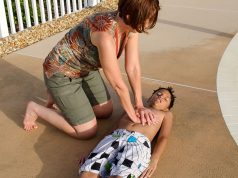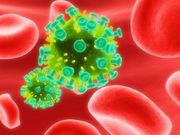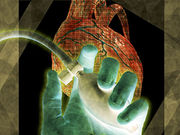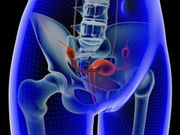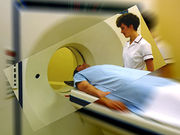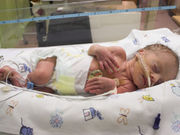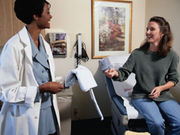Approaches Compared for Aspirin Prophylaxis for Preeclampsia
Benefits for U.S. Preventive Services Task Force recommendations and for universal prophylaxis
Knee Bracing No Benefit Over Nonoperative Program in Knee OA
Significant improvements in pain, activities of daily living at week 52, regardless of bracing
Continuation of Antibiotics for UTI Often Inappropriate
Antibiotics frequently initiated inappropriately in ER; continuation after admission inappropriate for 68%
Preventive HIV Treatment Shown Effective at Health Clinics
But uptake of PrEP lower among blacks
AAO: Electronic Glasses May Be New Option in Amblyopia Tx
Programmable electronic glasses block vision in good eye every 30 seconds
White-Coat, Masked HTN Tied to Target Organ Complications
Both associated with increased aortic stiffness, renal injury, incident cardiovascular events
Risk of Fractures Reduced in Polycystic Ovary Syndrome
Fracture risk reduction more pronounced in women diagnosed before age 30
Primary Aldosteronism Screen Cost-Effective in Resistant HTN
Findings for computed tomography scanning followed by adrenal venous sampling
Increased Dwell Time Doesn’t Raise Infection Risk for PICCs
Risk of central line-linked bloodstream infections not up for peripherally inserted central catheters
States Encouraging Doctors to Accept Medicaid Expansion
Although Medicaid expansion does not work for many docs, states trying to find ways to make it work



